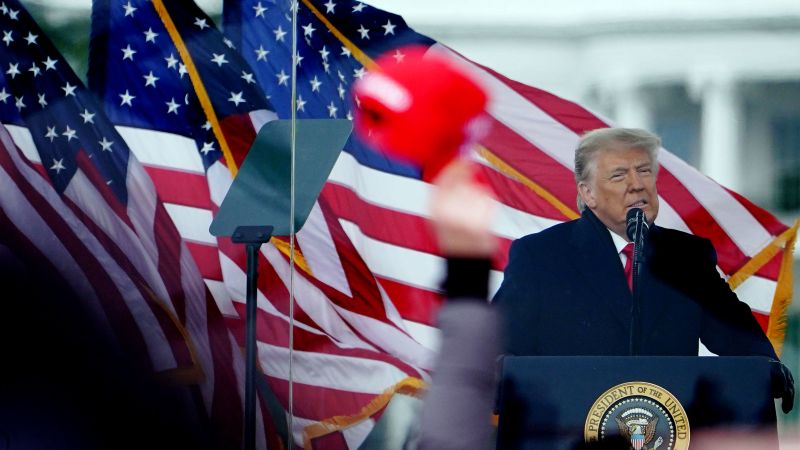The question of whether the legal system can hold Donald Trump accountable for his actions following the 2020 election has been a topic of discussion among courts nationwide. The Supreme Court is set to weigh in on this issue, with the potential to make a significant impact on the outcome. While the high court is not obligated to follow the interpretations of lower courts, their decision could have far-reaching implications for the future.
At the heart of the matter is whether Trump’s attempts to overturn the election results fall under his duties as president or if they were outside the scope of his official responsibilities. Lower courts have evaluated this issue in various contexts, including criminal cases, civil lawsuits related to January 6, and other legal proceedings. These courts have come to different conclusions, setting the stage for the Supreme Court to provide clarity on the matter.
Trump has argued that his efforts to challenge the election results were part of his official presidential duties and therefore should be shielded from legal consequences. However, judges have rejected this argument, stating that campaigning for re-election is not an official act of the presidency. Trump has sought broader immunity from criminal and civil prosecution, which has been met with skepticism from the judiciary.
In a case involving former White House chief of staff Mark Meadows and the Georgia election subversion prosecution, the 11th Circuit Court of Appeals rejected claims that Trump’s actions were part of a legitimate White House effort. The court highlighted the lack of involvement by the White House Counsel or the Department of Justice in these matters, further undercutting Trump’s claims of official presidential conduct.
Despite Trump’s attempts to claim immunity based on his status as a former president, judges have increasingly expressed concerns about the potential criminality of his actions. In a case concerning the House January 6 Committee’s pursuit of emails by John Eastman, a federal judge ruled that Trump and Eastman likely committed criminal offenses. The judge emphasized the importance of holding accountable those responsible for undermining democracy and the Constitution.
As the Supreme Court prepares to hear arguments on Trump’s attempts to overturn the 2020 election, the outcome of this case could set a crucial precedent for presidential accountability. The justices will have to decide whether Trump’s actions were within the realm of official presidential duties or if they constituted misconduct that should be subject to legal consequences. The ruling will have significant implications for future cases involving similar challenges to the integrity of the electoral process.


